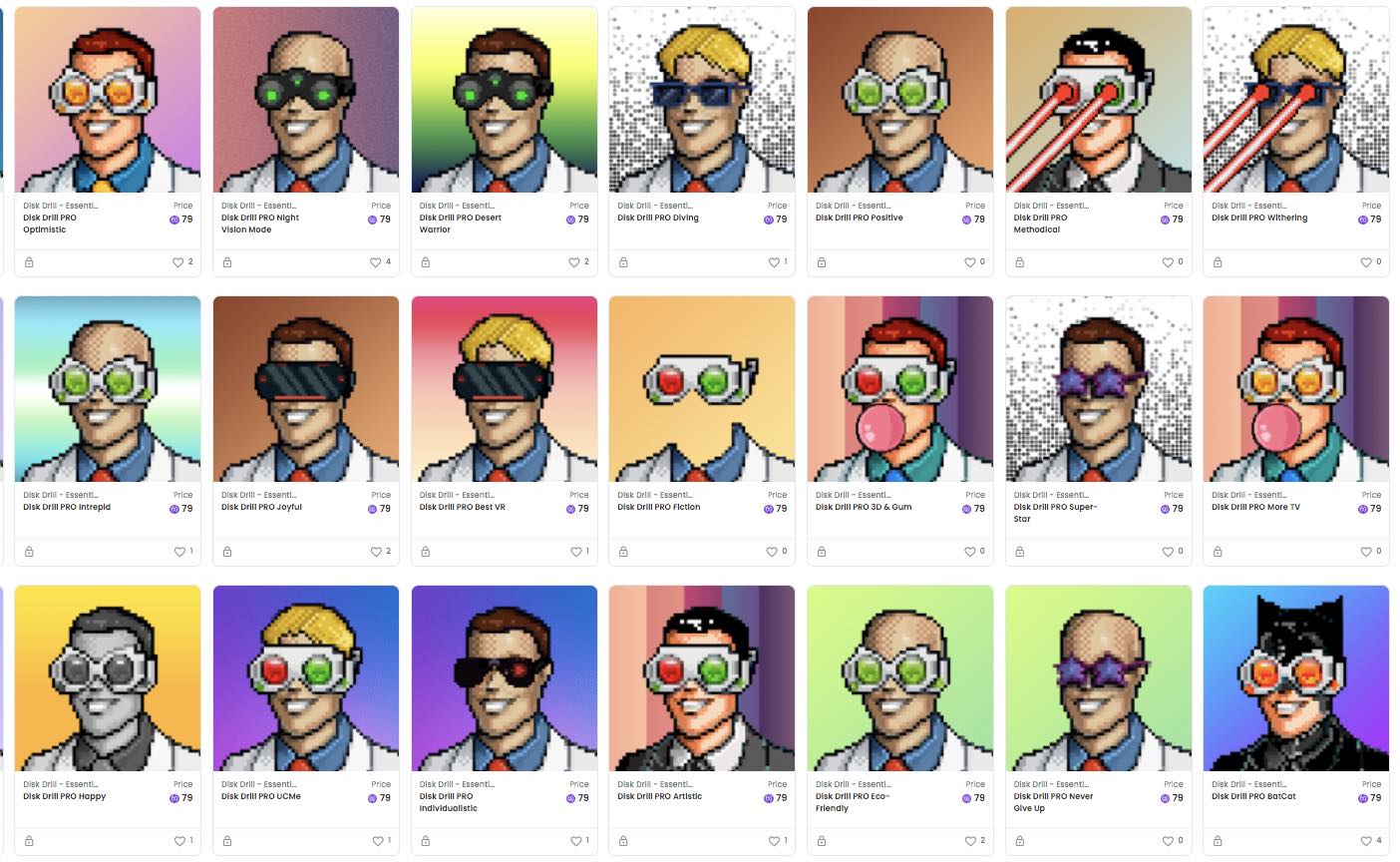Non-fungible tokens, or NFTs for short, have reached mainstream awareness, with everyone from large corporations like Adidas, Dolce & Gabbana, and McDonald’s to celebrities like Snoop Dogg, Grimes, and Tony Hawk exploring the technology.
So far, most NFT projects that have made the headlines revolve around digital art and collectibles, and for a good reason. As unique cryptographic tokens stored in a blockchain (the technology behind Bitcoin and other cryptocurrencies), NFTs make it possible to verify the ownership of any digital or physical asset in a decentralized manner.
But NFTs are much more than digital receipts for crypto purchases. They are essentially small software applications that can be programmed to enable all kinds of exciting use cases, and one particularly interesting use case is currently being pioneered by CleverFiles, the software company behind Disk Drill, popular data recovery software.
Software Licensing Is Ready for Disruption
Today’s software licensing models leave a lot to be desired by both software vendors and users, and CleverFiles is attempting to overcome their shortcomings with a new NFT software licensing model.
Here are just three software licensing problems software developers and users experience every day:
- Lost licenses: Most software licenses are delivered to users as alphanumeric codes contained in email messages. An accidental email deletion or the loss of access to email is all it takes for a valid license to become irrecoverable, and not all software vendors are equally willing to help in such situations.
- License transferability: Traditional software licenses are not flexible in terms of license transferability. As a result, the second-hand license market is ripe with scammers, and practices such as software license borrowing are greatly underutilized.
- Software piracy: Nobody knows how much money software vendors lose because of piracy, but the exact figure would almost certainly be eye-watering. Unfortunately, current anti-piracy measures can be costly to implement, and their effectiveness is not optimal.
With over two decades of IT business experience, Roman Kropachek, the founder of CleverFiles, is deeply familiar with the shortcomings of established software licensing models.
As an early blockchain technology enthusiast, Roman was among the first in the software market to realize that NFTs have the potential to enable innovative software licensing models, and he decided to turn his idea into reality.
“Just like every new technology, NFTs can be used for all kinds of different purposes—some more legitimate than others,” says Roman Kropachek. “Software licensing is one of those areas that can greatly benefit from NFT-based tokenization, and I’m thrilled that CleverFiles is the first company in the world to explore this use case.”
Toward Smarter Software Licensing
Earlier this year, CleverFiles became the first software developer in history to sell software licenses as NFTs. The Virginia-based company launched a collection of 100 full-featured transferable lifetime Disk Drill licenses on OpenSea, the largest and most trusted NFT marketplace in the world.
Each of the 100 Disk Drill NFT licenses costs the equivalent of $79 in USD Coin (an open-source stablecoin whose value is tied to the United States dollar), so it’s roughly 30 percent cheaper than a standard lifetime license to Disk Drill PRO, which costs $118.
In addition to the discounted price, all buyers of Disk Drill NFT licenses also get a unique piece of NFT art to keep as a potentially valuable digital collectible.
Even though this initial batch of Disk Drill NFT licenses is just the first step toward a smarter software licensing model, CleverFiles has already accomplished several objectives, such as making licenses easily transferable, ensuring that licenses can always be retrieved, and eliminating purchase friction.
In the future, NFT software licenses could also offer a whole host of other benefits because they can be programmed to automatically execute contractual agreements when specific conditions are met.
For example, software vendors could program NFT licenses so that they automatically receive a percentage of any second-hand sale or transfer of their products. Also, software license validation and verification could be completely automated because all necessary information would securely reside in a cryptocurrency wallet.
Conclusion
Technology has been evolving at lightning speed, but software licensing models have remained relatively unchanged since the era of MS-DOS. Now, CleverFiles is disrupting the industry by pioneering a new NFT use case, one that could revolutionize how software licenses are obtained, used, and transferred.
Author: Jeff Cochin, freelance tech writer
Twitter: https://twitter.com/Jeff_Cochin
Advertising disclosure: We may receive compensation for some of the links in our stories. Thank you for supporting LA Weekly and our advertisers.

